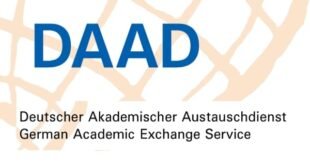The University of Abomey Calavi in Benin hosted a scientific conference on “COVID-19: Reality, Challenges and Perspectives” on October 27, 2022. Organized by the National Academy of Sciences, Arts and Letters of Benin, the conference gathered researchers, lecturers, Directors of the National Health Institutes, relevant ministerial department leaders and speakers from Benin, Burkina Faso, Nigeria and France. Three years after the emergence of SARS-COv-2, it was important to understand the impacts of the efforts and initiatives undertaken by African countries to fight against the disease to draw relevant lessons for suitable epidemic preparedness.
As secretary of the rapporteur of the scientific committee, Prof. Glèlè Kakaï, Head of the HRH-SEMCA, gave a presentation on “On the management of COVID-19: the role of vaccination”. The aim was to present the impact of vaccination combined with non-pharmaceutical interventions (NPIs) on the dynamics of the pandemic in West Africa. Using a Distributed Lag non-linear model, he was able to measure the delayed effects of the main measures against the pandemic (vaccination or NPIs) and the effect of confounding factors from the detection of the first case in the region to September 22, 2022. The results revealed a decreasing trend of NPIs and an increasing trend for vaccination coverage. In addition, the new reported cases and deaths show a decreasing trend.
In the case of the new reported cases, NPIs showed a significant protective effect against the new reported cases of infection by SARS-Cov-2 with a lag effect of around 40 days when 20% of the NPI scores are applied. Vaccination showed a significant protective effect against COVID-19, with a relatively short lag time of 20 days when 20% of the West African population are vaccinated.
Regarding the number of deaths, NPIs showed a significant protective effect against COVID-19, with a delayed effect of around 20-25 days when 60% of the NPI scores were applied. Vaccination showed a more immediate significant protective effect against COVID-19.
He explained that these results should be considered with caution as it is difficult to establish causality between control measures and the number of reported cases and deaths. Indeed, other factors, difficult to quantify, could also influence the dynamics of the pandemic in the same period. These include confounding factors such as the emergence of new variants of the virus, co-morbidity, acquired immunity and the use of traditional medicine.
In conclusion, public health decision-making may have great uncertainty, especially in dealing with emerging infectiousdiseases, so it is necessary to establish a collaborative mechanism among researchers, epidemiologists, and public healthdecision-makers to reduce the uncertainty as much as possible. Statistical and mathematical models should be considered useful decision-support tools but not decision-making tools.

 Français
Français LABEF Le Laboratoire de Biomathématiques et d’Estimations Forestières (LABEF)
LABEF Le Laboratoire de Biomathématiques et d’Estimations Forestières (LABEF)


